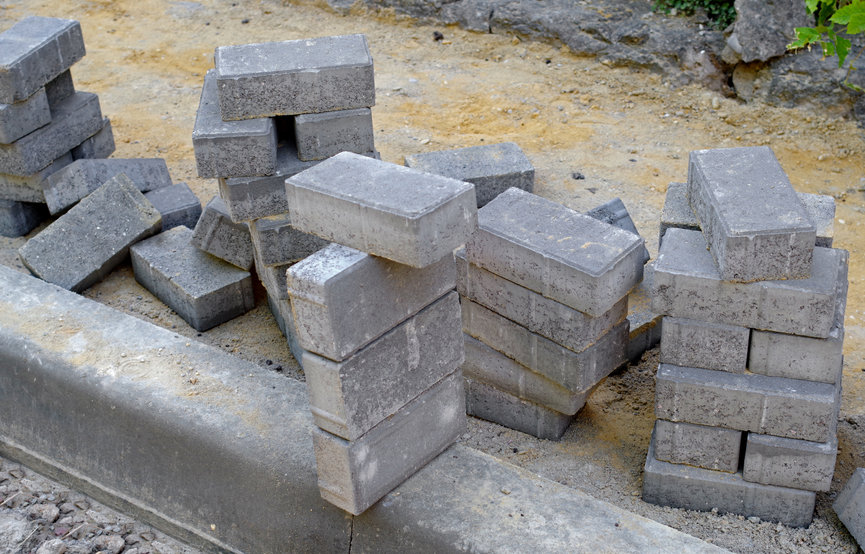Concrete Blocks

Concrete blocks are a versatile and durable building material. They can be used for foundations, walls, and partitions, and their smooth surface makes them easy to clean and maintain. In addition, concrete blocks are relatively fire-resistant and can provide good sound insulation. As a result, they are an excellent choice for both commercial and residential construction.
While concrete blocks are typically made from Portland cement, sand, gravel, and water, other ingredients can be added to improve their strength or appearance. For example, pigments can be used to give the blocks a decorative finish, while reinforcement materials such as steel can be added to increase their load-bearing capacity. With so many potential applications, it is no wonder that concrete blocks are one of the most popular choice for masonry.
Brick Blocks
Brick is one of the most common building materials used in the world, and for good reason. It is strong, durable, and easy to work with. Bricks can be used for a variety of different projects, from walls to floors to fireplaces. Brick masonry is the process of working with bricks to create structures. Bricklayers use a variety of tools to cut, shape, and place bricks. They must also have a good understanding of how to mix mortar and how to lay bricks in order to create a sturdy structure. In addition to being used in construction, bricks can also be used for decoration. Painted bricks can add a splash of color to any room, and brick fireplaces are a classic feature in many homes.
Differences between Concrete Blocks and Brick Blocks
- How They are Made
Concrete blocks are made from a mixture of sand, water, and cement. The mixture is then poured into molds and allowed to harden. Brick blocks, on the other hand, are made from a mix of clay and water. The clay is fired in a kiln to create a hard, dense material. Since concrete blocks are made with cement, they are much stronger than brick blocks. However, brick blocks are more thermally efficient than concrete blocks, so they are often used in areas where insulation is important.
- Expenses
Concrete blocks are typically less expensive than brick blocks, and they are easier to work with since they can be cut and shaped as needed. However, concrete is not as durable as brick, so it may not be the best choice for projects that require a long-lasting foundation. Brick blocks are more expensive than concrete, but they are much more durable. Brick is also less likely to settle over time, so it is a good choice for foundations and other load-bearing structures.
- Aesthetics
Aesthetics is important when choosing concrete or brick blocks for your home. It is the first thing people see when they look at your home. If you want a modern-looking home, you would go with the concrete blocks. The clean lines of the concrete give it a sleek look. If you want a more traditional-looking home, you would go with the brick blocks. The bricks have a more textured look that can give your home a classic feel. When it comes to aesthetics, it is all about personal preference. Choose the block that best fits your style.
- Thermal Resistance
When it comes to thermal resistance, concrete blocks and brick blocks are very similar. Both are made from natural materials with good insulating properties. However, there are some key differences between the two. Concrete blocks are filled with air pockets, which help to reduce heat loss. Brick blocks, on the other hand, are solid, so they do not have the same level of insulation. In addition, concrete blocks are typically larger than brick blocks, so they have more surface area exposed to the environment. As a result, concrete blocks tend to be more thermally resistant than brick blocks.
In conclusion, concrete blocks are more versatile and easier to work with, but they are also more expensive. Brick blocks are cheaper and more durable, but they can be a little harder to work with. Ultimately, the best choice for you will depend on your specific project requirements.
